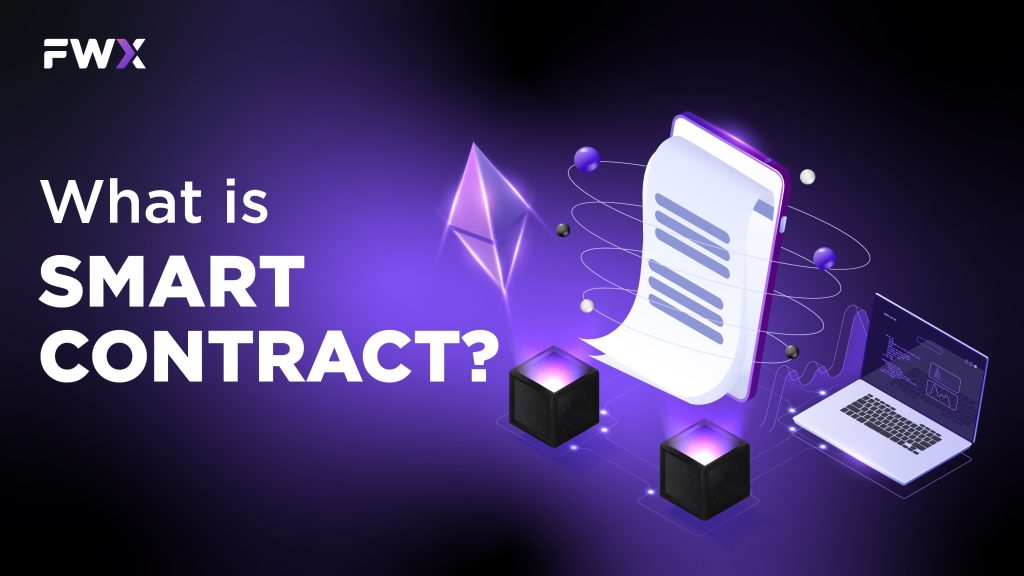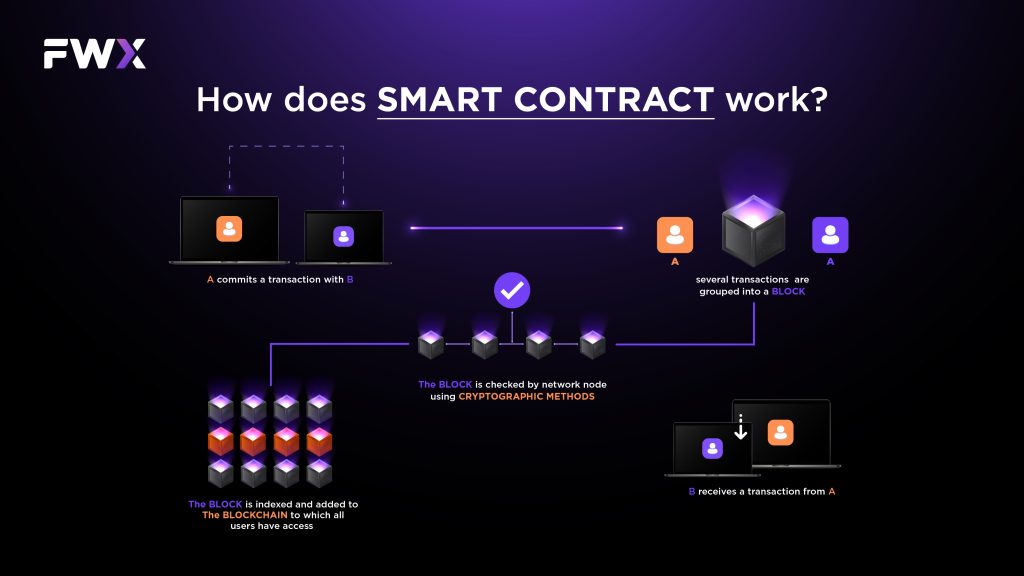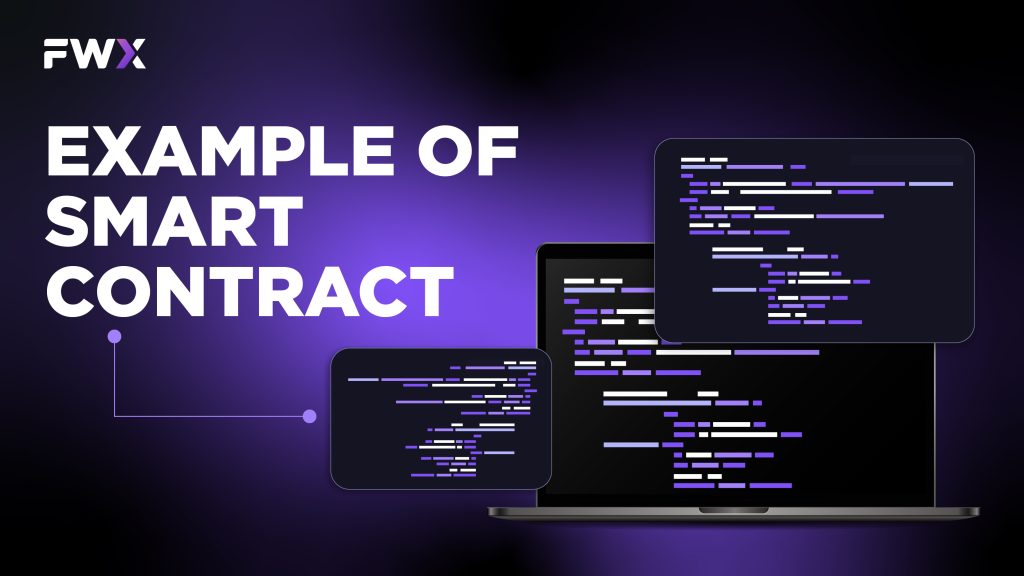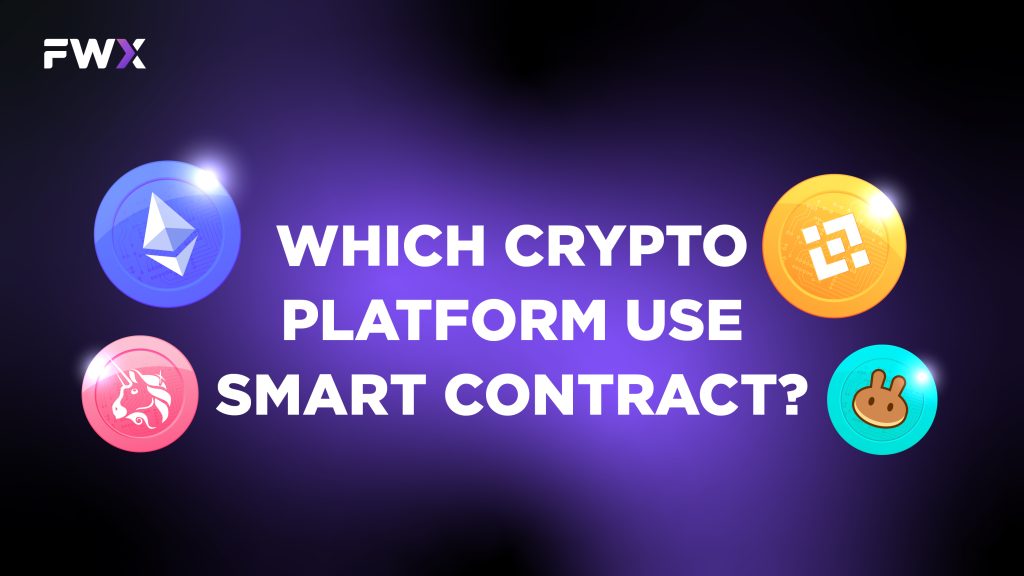Understanding the basics of smart contracts is important for anyone interested in blockchain technology and its potential applications. It allows one to grasp the concept of trustless transactions, the role of smart contracts in decentralized finance and the potential impact on various industries. Knowing about smart contracts can also open up new opportunities for individuals and businesses.
What is a smart contract?

It is a computer program that can automatically execute the terms of a contract when certain conditions are met. It is a self-executing contract with the terms of the agreement written directly into lines of code. It is typically implemented on a blockchain network, which is a decentralized and distributed digital ledger that records transactions.
The key feature of it is that it can automatically execute the terms of a contract without the need for intermediaries or trusted third parties. This can greatly reduce the costs and complexities of traditional contract processes, and also increase the speed and efficiency of transactions.
It can be used for a wide range of applications, including financial transactions, supply chain management, and digital identity verification. For example, in the context of financial transactions, a smart contract could automatically transfer funds from one party to another when certain conditions are met, such as the receipt of goods or services.
In supply chain management, It can be used to automatically track the movement of goods and ensure that they are delivered as agreed upon. In digital identity verification, It can be used to verify that an individual is who they claim to be and to grant or revoke access to certain resources based on this verification.
Overall, smart contracts are a powerful tool for automating and streamlining a wide range of processes and transactions, making them faster, cheaper, and more secure.
How does a smart contract work?

Smart contracts work by encoding the terms of an agreement into lines of code that can be executed automatically on a blockchain network. It typically contains a set of rules and conditions that must be met in order for the contract to be executed. Once these conditions are met, the contract will automatically execute the specified actions.
The process of creating of it typically involves the following steps:
- Define the terms of the agreement: The parties involved in the contract must agree on the terms and conditions of the agreement, including what actions will be taken when certain conditions are met.
- Code the contract: Once the terms of the agreement have been defined, a developer will code the contract using a programming language that is compatible with the blockchain network on which the contract will be executed.
- Deploy the contract: After the contract has been coded, it is deployed to the blockchain network. This involves submitting the contract to the network and having it verified and added to the blockchain.
- Execute the contract: Once the contract has been deployed, it can be executed automatically when the specified conditions are met. For example, if the contract is a financial transaction, it will automatically transfer funds from one party to another when the conditions are met.
- Monitor the contract: After the contract has been executed, it can be monitored to ensure that the terms of the agreement have been met. This typically involves reviewing the transaction history on the blockchain to verify that the contract has been executed correctly.
It’s important to note that they are immutable once deployed and the terms and conditions of the agreement cannot be altered, making them secure and transparent.
Smart contracts can also interact with each other using the blockchain network, allowing them to be used in complex applications such as decentralized finance (DeFi) and non-fungible tokens (NFTs). In DeFi, It can be used to create decentralized exchanges, lending and borrowing platforms, and insurance protocols. In NFTs, It is used to create unique digital assets that can be traded on the blockchain.
What is an example of smart contracts?

An example is a financial transaction where the terms of the agreement are encoded into lines of code that can be executed automatically on a blockchain network.
For example, let’s say Alice and Bob have agreed to a transaction where Alice will sell her car to Bob for $20,000. They agree that the payment will be made in cryptocurrency and that the transfer of ownership will take place as soon as the payment is received.
To execute this transaction using a smart contract, the following steps would be taken:
- The terms of the agreement (the sale of the car for $20,000 and the transfer of ownership upon receipt of payment) are defined and agreed upon by Alice and Bob.
- A developer codes the contract using a programming language compatible with the blockchain network. The contract is deployed to the blockchain network and verified.
- Bob sends $20,000 in cryptocurrency to the smart contract’s address.
- Once the payment is received, the contract automatically executes the transfer of ownership of the car to Bob.
- Both parties can monitor the transaction on the blockchain to ensure that the contract has been executed correctly.
This example illustrates how smart contracts can automate and streamline financial transactions, making them faster, cheaper, and more secure.
It’s important to note that smart contracts are immutable once deployed, which means that the terms and conditions of the agreement cannot be altered. This ensures that it is executed according to the terms agreed upon, providing transparency, security and trust for both parties.
Smart Contracts Used Case
- Supply Chain Management: It can be used to automatically track the movement of goods and ensure that they are delivered as agreed upon. For example, a smart contract can automatically verify that a shipment of goods has been received and release payment to the supplier.
- Decentralized Finance (DeFi): It can be used to create decentralized exchanges, lending and borrowing platforms, and insurance protocols. For example, Its can be set up to automatically execute a trade on a decentralized exchange when certain conditions are met, such as a certain price being reached.
- Digital Identity Verification: It can be used to verify that an individual is who they claim to be and to grant or revoke access to certain resources based on this verification. For example, It can be set up to automatically grant access to a building or a website based on a person’s digital identity.
- Non-Fungible Tokens (NFTs): It can be used to create unique digital assets that can be traded on the blockchain. For example, It can be set up to create and manage the ownership of a digital collectible, such as a virtual trading card.
- Real Estate: It can be used to automate the process of buying and selling real estate. For example, It can be set up to automatically transfer ownership of a property to the buyer and release payment to the seller when certain conditions are met, such as the receipt of the required documents.
Are smart contracts only on Ethereum?
Smart contracts were first introduced by Nick Szabo in 1994, but it was not until the launch of Ethereum in 2015 that the concept gained widespread attention and adoption. Ethereum’s smart contract functionality is built on its own programming language, Solidity, which enables developers to create decentralized applications (dApps) and execute it on the Ethereum blockchain.
However, Ethereum is not the only blockchain platform that supports its. Other blockchain networks such as EOS, TRON, and NEO also have their own smart contract capabilities and programming languages. EOS uses a Delegated Proof of Stake (DPoS) consensus mechanism, which enables fast and efficient execution of smart contracts. TRON utilizes the Solidity programming language, similar to Ethereum, and aims to provide a high-performance smart contract platform. NEO, on the other hand, uses a unique smart contract system called the Neo Contract, which supports multiple programming languages and aims to provide a secure and scalable smart contract platform.
In recent years, newer projects such as Binance Smart Chain, Polygon, and Harmony have also emerged as popular platforms for deploying and executing smart contracts, each with their own unique features and advantages. It’s worth mentioning that some cryptocurrencies such as Bitcoin also have a limited support of smart contract functionality through the use of scripts.
In conclusion, smart contracts are not limited to Ethereum, there are other blockchain platforms that support smart contract functionality and have their own unique features and advantages.
Which crypto platform has a smart contract?

Many cryptocurrencies have the capability to support smart contracts. Ethereum is considered the first and most popular platform for deploying and executing smart contracts, but other blockchain networks such as EOS, TRON, and NEO also have their own smart contract capabilities. Additionally, newer projects such as Binance Smart Chain, Polygon, and Harmony are also gaining popularity for their smart contract capabilities.
Ethereum’s smart contract functionality is built on its own programming language, Solidity, which enables developers to create decentralized applications (dApps) and execute smart contracts on the Ethereum blockchain. EOS uses a Delegated Proof of Stake (DPoS) consensus mechanism, which enables fast and efficient execution of smart contracts. TRON utilizes the Solidity programming language, similar to Ethereum, and aims to provide a high-performance smart contract platform. NEO, on the other hand, uses a unique smart contract system called the Neo Contract, which supports multiple programming languages and aims to provide a secure and scalable smart contract platform.
- Binance Smart Chain (BSC) is Binance’s own blockchain that is designed to offer high-performance, low-cost smart contract execution, making it ideal for decentralized finance (DeFi) and other blockchain use cases.
- Polygon is an open-source, multi-chain framework which aims to provide an Ethereum-compatible infrastructure for building and deploying decentralized applications at scale.
- Harmony is a high-performance, low-cost, and secure smart contract platform that aims to enable decentralized applications and digital assets to thrive.
Additionally, other cryptocurrencies such as Bitcoin and Litecoin have limited support for smart contract functionality through the use of scripts, although these capabilities are not as advanced as those offered by Ethereum and other smart contract-specific platforms.
In conclusion, there are many different cryptocurrencies and blockchain platforms that support smart contract functionality, each with their own unique features and advantages. Ethereum is considered the pioneer and most popular platform for smart contracts, but other platforms such as EOS, TRON, NEO, Binance Smart Chain, Polygon, Harmony, and even Bitcoin and Litecoin also have their own smart contract capabilities.
conclusion
In conclusion, smart contracts are self-executing computer program with the terms of the agreement written directly into lines of code that can automatically execute when certain conditions are met. Smart contracts can be used to automate and streamline a wide range of processes and transactions, making them faster, cheaper, and more secure. They are typically implemented on a blockchain network, which is a decentralized and distributed digital ledger that records transactions. Smart contracts are immutable once deployed, making them secure and transparent, and can interact with each other on the blockchain network. Examples of smart contract use cases include supply chain management, decentralized finance, digital identity verification, and non-fungible tokens.


